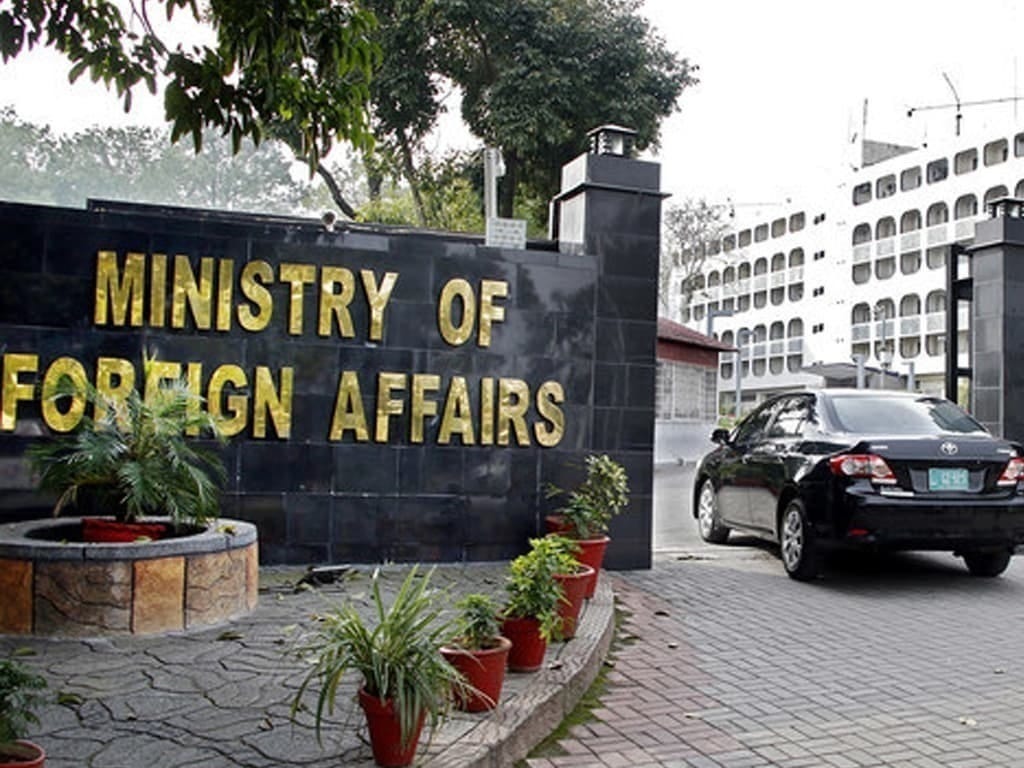Pakistan has officially declared a staff member of the Indian High Commission in Islamabad as persona non grata, citing involvement in activities that don’t align with his privileged status.
According to a press release from the Foreign Office, the diplomat has been given just 24 hours to exit the country, a development that came to light on Thursday.
In response, the Indian government issued a statement demanding that the Pakistani official also leave within the same timeframe, reiterating its call for diplomats to stick to their official roles and avoid any extraneous activities.
Additionally, a demarche was presented to Pakistan’s Charge d’Affaires, urging him to ensure that Pakistani diplomats in India adhere to their designated responsibilities without overstepping their bounds.
In a tragic turn of events, a suicide attack on a school bus in Khuzdar, Balochistan, claimed the lives of at least six people, including three schoolchildren.
The attack occurred when an explosive-laden vehicle crashed into the bus transporting students to the Army Public School (APS) in the Khuzdar cantonment.
According to the Bomb Disposal Squad, the vehicle was packed with over 30 kilograms of explosives. The military’s media wing, ISPR, has accused India and its proxies in Balochistan of orchestrating this horrific attack.
ISPR further alleged that India is using proxies to create instability in Pakistan, particularly in regions like Balochistan and Khyber Pakhtunkhwa.
Balochistan’s Chief Minister, Sarfraz Bugti, condemned the attack, labeling it a brutal act against innocent children.
He connected the attack to Indian proxies, suggesting they were using Afghanistan as a base, and accused India of backing separatist insurgent groups in the area.
Prime Minister Shehbaz Sharif, accompanied by military leaders, made a trip to Quetta for an urgent briefing. He condemned the attack and extended his condolences to the families of the victims.
He promised to ensure that those responsible would face justice and called for a deeper investigation into the role of Indian-backed proxies in the incident.
The attack has sparked widespread international outrage. The United States condemned the assault, with the US Embassy in Islamabad expressing “deep sorrow” and standing in solidarity with the victims. “No child should ever fear going to school,” said US Chargé d’Affaires Natalie Baker in a statement.
China also voiced its condemnation, with Ambassador Jiang Zaidong offering condolences to the victims’ families and reaffirming strong support for Pakistan in its fight against terrorism. “China opposes all forms of terrorism and will continue to firmly support Pakistan in advancing counter-terrorism operations,” the Chinese ambassador remarked.
Human rights organizations, including the Human Rights Commission of Pakistan (HRCP), denounced the attack as a breach of international humanitarian law.
The HRCP called for the swift identification and prosecution of those responsible and urged the Pakistani government to tackle the deep-seated issues in Balochistan through lawful and peaceful means.
The recent conflict between Pakistan and India took a serious turn on April 22, when a tragic attack in Pahalgam claimed the lives of 26 people. India quickly pointed the finger at Pakistan, but Pakistan firmly denied any involvement.
The very next day, on April 23, India responded with a series of aggressive measures. They suspended the long-standing Indus Waters Treaty (IWT), canceled visas for Pakistani citizens, closed the Wagah-Attari border crossing, ordered the Pakistan High Commission in New Delhi to shut down, and reduced the number of diplomatic staff at both embassies.
Things escalated even further in the early hours of May 7, when missile strikes targeted six cities in Punjab and Azad Jammu and Kashmir (AJK). This attack destroyed a mosque and resulted in the deaths of many civilians, including women, children, and the elderly.
In a rapid military response, Pakistan’s armed forces managed to shoot down several Indian warplanes, including three Rafale jets. The situation intensified again on May 10, when India launched missile strikes on multiple Pakistani airbases. In retaliation, Pakistan initiated Operation Bunyanum Marsoos, which caused damage to Indian military facilities, including missile storage sites and airbases.
On May 10, US President Donald Trump announced that a ceasefire had been achieved after intense diplomatic negotiations overnight. Shortly after, both Pakistan’s Foreign Minister Ishaq Dar and the Indian foreign secretary confirmed the agreement.
For the latest updates and insights on new developments, visit the NEWSON


